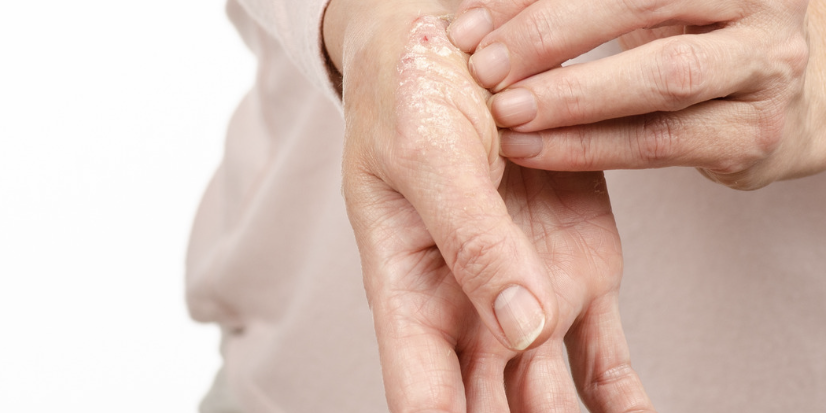Psoriasis is a common, long-lasting disease with flare-ups and remissions. It is usually characterized by sharply circumscribed skin sores with psoriasis (silver) colored scales, which give the disease its name.
What Causes Psoriasis?
The cause of the disease is not known for certain, but it is thought to be influenced by the immune system, genetics and environmental factors. Environmental factors (throat infections due to streptococci), medications, excessive alcohol intake, smoking and mental stress can initiate or exacerbate the disease.
Is Psoriasis Contagious?
The disease is not transmitted by contact.
What are the Symptoms of Psoriasis?
The symptoms of the disease vary according to the clinical features. The typical appearance is an oval or round, raised rash covered with silvery scales. Psoriasis sores can occur all over the body, although they are more common on the knees, elbows and scalp. Nail and joint problems can be seen in the course of the disease. In psoriasis, pinhead-sized pits on the nail surface, separation of the nail from its bed, yellowish discoloration under the nail, loss of a part of the nail and thickening of the skin under the free part of the nail are common changes.
What is the Course of Psoriasis?
It is usually long-lasting, with exacerbations and periods of well-being. Symptoms and severity can vary from person to person and even within the same person over time.
How is Psoriasis Diagnosed?
The diagnosis can be made by clinical findings. Rarely, skin biopsy may be required.
How is Psoriasis Treated?
There is no definitive treatment for the disease. However, with appropriate treatment, skin manifestations can be controlled and long-term well-being can be achieved.
* First of all, drugs and behaviors that may exacerbate the disease (scratching, scrubbing and linting in the bath, etc.) should be avoided.
* Many factors (prevalence of the disease, localization, nail and joint involvement, etc.) are influential in the choice and process of treatment.
* In psoriasis with limited involvement; primarily local treatments (moisturizers, smears) are preferred.
* Patients' compliance with the recommended treatment is very important for treatment success. In treatment
The physician, the patient and the patient's relatives should cooperate.

